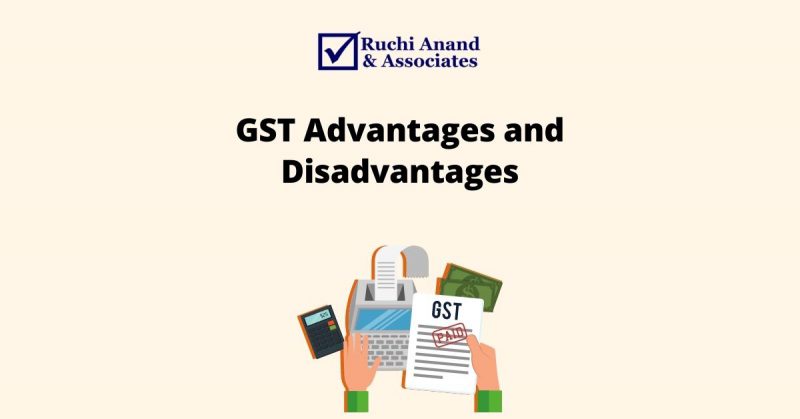GST Advantages and Disadvantages
After the implementation of Goods and Services Tax (GST), the Government received some feedbacks on the advantages and disadvantages of GST. The GST acts as a Value Added Tax (VAT) and designed as a complete indirect tax charge on manufacture, sale, and consumption of goods as well as services at the national level. It shall change all indirect taxes levied on goods and services by the Indian Central and State governments. Though GST aids as to be historical tax reform in India, it also comprises some demerits. In this article, aspect into GST Taxation and deal with its advantages and disadvantages.
GST Advantages
- GST is a transparent tax and also decreases the numeral of indirect taxes.
- GST will not be a cost to registered retailers therefore there will be no concealed taxes and the cost of doing business will be lower.
- Benefits, as prices will come down which in turn will help companies as consumption will increase.
- There is no distrust that in the production and distribution of goods, services are increasingly used or consumed and vice versa.
- Separate taxes for goods and services, which is the present taxation system, needs division of transaction values into value of goods and services for taxation, leading to greater complications, administration, including compliances costs.
- In the GST system, when all the taxes are combined, it would make possible the taxation burden to be split equitably between manufacturing and services.
- GST will be charged only at the final destination of consumption based on the VAT principle and not at various points (from manufacturing to retail outlets). This will help in removing economic misrepresentations and bring about development of a common national market.
- GST will also aid to build a translucent and corruption-free tax administration.
- Currently, a tax is imposed on when a finished product moves out from a factory, which is paid by the manufacturer, and it is again taxed at the retail outlet when sold.
- GST is funded by the GSTN, which is a fully integrated tax platform to deal with all aspects of GST.
GST Disadvantages
- Some Economist says that GST in India would influence negatively on the real estate market. It would add up to 8 percent to the cost of new homes and decrease demand by about 12 percent.
- Some Experts says that CGST (Central GST), SGST (State GST) are nothing but new names for Central Excise/Service Tax, VAT and CST. Later, there is no major reduction in the number of tax layers.
- Some retail products presently have only a four percent tax on them. After GST outfits and clothes could become more expensive.
- The flight industry would be affected. Service taxes on airfares presently range from six to nine percent. With GST, this rate will exceed fifteen percent and effectively double the tax rate.
- Acceptance and relocation to the new GST system would involve teething troubles and learning for the entire ecosystem.

